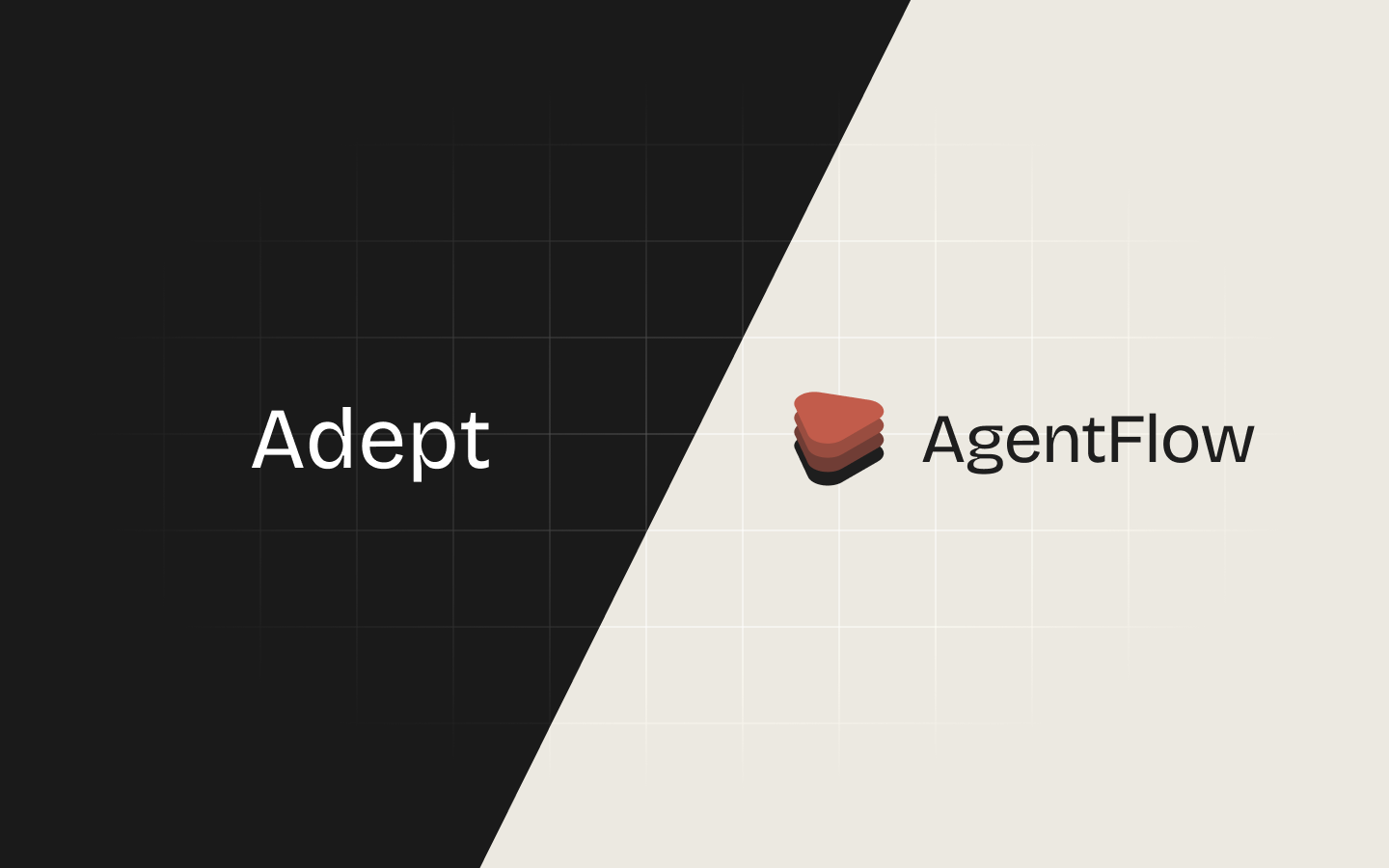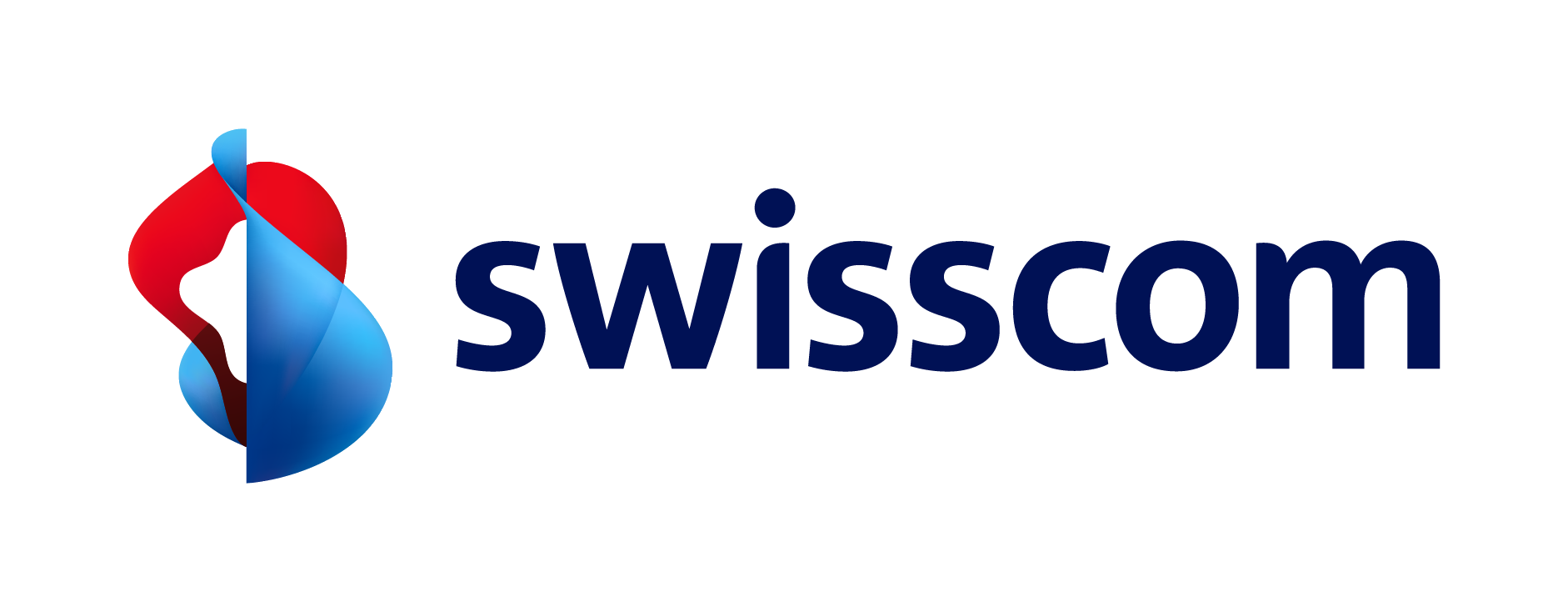AgentFlow vs. Adept: A Detailed Comparison
When it comes to enterprise agentic AI, AgentFlow offers an industry-focused solution that accelerates deployment and ensures governance, transparency, and security. Built for financial services and insurance, AgentFlow’s tailored workflows provide a much faster path to automation compared to Adept, a more horizontal platform with a broader, less specialized focus.

Why Companies Are Choosing AgentFlow
Vertical specialization
AgentFlow is designed specifically for finance and insurance, with pre-built workflows covering critical functions like underwriting, claims processing, and loan origination. Adept’s broader focus means it lacks the depth required for regulated sectors, often requiring customization to meet industry needs.
.png)
Faster deployment
Thanks to its buy-to-build model, AgentFlow can be deployed in under 90 days, supported by Forward Deployed Engineers who help fine-tune workflows. Adept requires more complex setup and customization, extending deployment timelines.
.png)
Governance-first design
AgentFlow offers robust out-of-the-box governance, with audit trails, role-based access controls, confidence thresholds, and model risk management, ensuring compliance across highly-regulated industries. Adept, while transparent, lacks the same built-in regulatory safeguards, requiring enterprises to supplement with external tools.
.png)
Secure by design
AgentFlow’s platform is built with SOC 2 Type II compliance, private VPC hosting, and customer-controlled environments, ensuring maximum data security. Adept relies primarily on a SaaS-based model, which may introduce concerns regarding data sovereignty for highly regulated institutions.
.png)
AgentFlow vs. Adept
Feature
AgentFlow
Adept
Expertise
Vertical AI tailored for finance and insurance
Horizontal platform for broad use
Governance
Out-of-the-box audit trails, compliance features
Requires external tools for full compliance
Deployment Speed
Deploy in <90 days with Forward Deployed Engineers
Longer deployment due to customization
Security
Private deployment options, full data control
SaaS-first model with potential data sovereignty concerns
Adaptability
SME-driven configuration and feedback loops
Relies on engineering for changes
Transparency
Confidence thresholds, audit logs, full decision traceability
Lacks regulator-grade transparency
AgentFlow vs. Adept: Deeper Analysis
.svg)
Expertise
AgentFlow was designed specifically for these sectors, with pre-configured agents for core workflows like underwriting, claims processing, and compliance tasks. This ensures that users can quickly leverage automation for highly specialized use cases without requiring significant custom development.
In contrast, Adept is a horizontal AI platform, meaning it is built to serve multiple industries with a broad focus. While Adept can be adapted to the needs of financial services, it lacks the out-of-the-box capabilities that AgentFlow provides, leading to longer setup times and potential risk of non-compliance in specialized workflows. The flexibility of Adept comes at the cost of industry-specific customization, creating delays in deploying production-ready AI for financial institutions.
.svg)
Governance
AgentFlow embeds governance directly into its architecture, offering confidence thresholds, audit logs, role-based access controls, and compliance alignment with global financial standards like IFRS 9 and CECL. This ensures that every decision made by the AI is traceable and auditable, which is critical for regulatory compliance and risk management.
Adept, while offering transparency and some governance features, does not meet the same high standards required by regulated industries. Enterprises using Adept must often integrate external governance tools to meet the necessary auditability, compliance, and risk management requirements. This extra step not only adds cost but also complicates the deployment and maintenance process.
.svg)
Deployment
AgentFlow delivers a streamlined deployment process that leverages its buy-to-build model. With pre-configured workflows and the support of Forward Deployed Engineers, AgentFlow can be implemented in under 90 days. These engineers work directly with SMEs to co-create and deploy production-ready solutions, ensuring rapid integration and high customer satisfaction.In contrast,
Adept typically requires longer deployment timelines, as its platform is more generalized and requires additional customization to cater to the specific needs of finance and insurance companies. This extended deployment time can delay ROI and increase total implementation costs, as organizations must spend more time tailoring the platform to industry-specific requirements.

Security
Adept’s SaaS-first approach is simpler and more convenient for less-regulated industries, but it can introduce challenges for companies in sectors like finance and insurance that require data sovereignty and higher security standards. Shared infrastructure may pose a risk in these sectors, where strict regulations demand a more secure and isolated environment.
.svg)
Adaptability
AgentFlow empowers SMEs (claims managers, underwriters, loan officers) to directly configure, monitor, and optimize their AI agents in real time. This reduces reliance on engineering teams and accelerates the process of tuning AI models to meet specific business needs.
Adept’s adaptability depends more on technical teams for configuration and workflow changes. While this may work well in less-complex environments, it introduces delays when financial institutions need to rapidly update AI models or workflows to stay compliant with shifting regulations. AgentFlow’s approach ensures that business units remain in control, allowing for faster response times and greater agility.
.svg)
Transparency
AgentFlow ensures complete decision traceability by logging each action and tying it to a confidence score, ensuring that every decision can be explained and defended to auditors. This regulator-ready transparency makes it easier to meet compliance requirements and builds trust with both internal teams and external stakeholders.
While Adept does provide some level of explainability, it lacks the depth required for regulated industries. Decisions made by Adept’s AI can often feel like a “black box,” which can undermine confidence in sectors where every decision must be justified and documented. AgentFlow’s transparency features ensure that all decisions are not only accurate but also understandable and auditable.
“Multimodal delivered transformative results for our banking outsourcing team in just 90 days. By automating the manual processing of over 300 daily payment orders and forms, we cut turnaround time by 75%, reduced staffing needs by 75%, and more than tripled our processing capacity—all without changing our existing systems. The accuracy, flexibility, and speed of iteration were impressive. Just as important, working with the Multimodal team was collaborative and seamless—they adapted quickly to our needs and delivered results week after week. Their agentic AI platform not only exceeded our goals, it redefined what we thought was possible.”

FAQ
Yes, for industries like finance and insurance that require highly specialized workflows, robust governance, and fast deployment. While Adept offers flexibility, it lacks the domain-specific expertise and regulatory compliance features that AgentFlow provides out of the box.
AgentFlow can be fully deployed in under 90 days, with industry-specific workflows and engineering support ensuring rapid go-live. Adept requires longer deployment timelines due to its general-purpose nature.
Yes, AgentFlow offers private VPC hosting and on-prem options for organizations that need full data control and compliance with industry regulations. Adept operates primarily through a SaaS model, which can pose challenges for regulated industries.
Business teams, including claims adjusters and underwriters, can directly configure and monitor AI agents. This reduces reliance on engineering teams and accelerates workflow changes. In contrast, Adept requires more technical involvement for customization.
Yes, AgentFlow is API-first and designed to integrate seamlessly with existing enterprise systems, making it easy to fit within your current infrastructure.
.svg)
.svg)
.svg)
.svg)